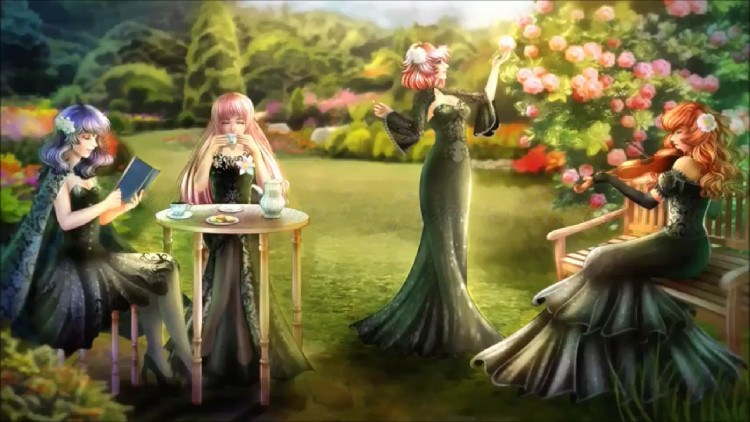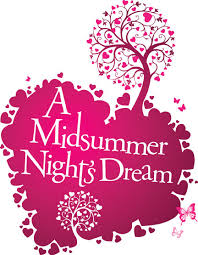Written by the most influential English poet, author, and novelist of all time, this sonnet is a fine work of William Shakespeare. Known as the national poet of England or ‘ Bard of Avon ‘( poet of Avon) because he was born in Avon, he has written around 154 sonnets, 39 plays, and 3 long verse poetry work. He primarily wrote most of his works between 1589 and 1630 which varied in different genres from historical to comedies and tragedies. His notable works include Hamlet, Macbeth, Romeo and Juliet, The Tempest, Othello, The Merchant of Venice, A Midsummer Night’s Dream, Twelfth Night, etc. His work has been translated into many languages and thus remains the most popular and irreplaceable part of English Literature.
Born to John Shakespeare and Mary Arden as the third of eight sons, Shakespeare attended the King Edward VI Grammar School in Stratford, where he learned Latin. He got married at age of 18 to Anne Hathaway, who was 26 at that time. Together they had three children, two daughters, Susanna ( the eldest one) and Judith, and a son named Hamnet ( twin of Judith). However, Hamnet died at the age of 11 due to some unknown reasons.
Afterward, in 1576 he came in touch with James Burbage, a theatre owner, and thus started his journey as a theatre worker during his initial days. During this period, England was ruled by Queen Elizabeth. By the 1590s, theatres were established well, and acting and playmaking were worth paying job. Hence Shakespeare maintained his family well. He performed in Ben Johnson’s plays ‘ Every Man in His Humour ‘ and ‘Sejanus’. He worked with the theatre called The Lord Chamberlain’s Men. He was also a shareholder there and thus received ten percent of all profits. Later on, The Lord Chamberlain’s Men received official status as the King’s Men in 1603 and received royal patent and protection. It’s been said that he lost his father in 1601, and in 1609, he moved to his hometown, where he resided until his death on 23 April 1616. He was buried in the chancel of the Holy Trinity Church two days after his death. His tomb’s epitaph read.

“Good frend for Iesvs sake forbeare,
To digg the dvst encloased heare.
Bleste be yͤ man yͭ spares thes stones,
And cvrst be he yͭ moves my bones.”
Interpretation : Good friend, for Jesus’ sake forbear,
To dig the dust enclosed here.
Blessed be the man that spares these stones,
And cursed be he that moves my bones.
His wife, too, died in 1623 before seeing his First Folio edition of his works and was buried next to him.
It’s worth noteworthy that he never wrote to be read or studied but to be viewed on stage. His plays and poems passed many messages to his readers about humanism and secular views. We also see the impact of Renaissance in his works. He stretched and touched the boundaries of literature with history, politics, as well as personal experiences of daily life very well.
That’s why one of his fellow authors said: “We wondered, Shakespeare, that thou went’st so soon / From the world’s stage to the grave’s tiring room.”
Analysis: Sonnet 1 is the first sonnet among the 154 sonnets written by William Shakespeare. Being the first sonnet of a fair youth, it serves as a preamble to the other sonnets of the series. However, the concept of fair youth is somewhat different from other works of Shakespeare as there is not even a single word of romanticism in it. Yet it serves the purpose of teaching mankind about the importance to reproduce.
Shakespeare here also brings a new shape to the usual sonnet form. He molded the pre-determined romantic or conventional form of sonnets into unusual and unconventional ones. Throughout the poem, his tone keeps changing from aggressive to advising to encouraging.
Talking about the audience, although there is no such clarity about the identity of a fair youth, there are many assumptions about that.
Now let’s take a look at the explanation of poetry.
From fairest creatures, we desire increase,
That thereby beauty’s rose might never die,
In these lines, the poet asks the fair youth to reproduce and hence produce progeny that carries their beauty to the next generation. He says that their beauty and fair nature should be passed on to another generation to prevent them from being lost, and for that, they should reproduce.
It says: we want fair youth to reproduce and multiply this beauty so that this beauty will never end.
But as the riper should by time decease,
His tender heir might bear his memory;
These lines talk about inevitable death. They say that these riper ( fair youth) parents will eventually die, and then their heir will carry forward this beauty with them. Memory here signifies the beauty that’s passed on from parents to progeny.
But thou, contracted to thine own bright eyes,
Feed’st thy light’s flame with self-substantial fuel,
In these lines, the poet is asking the youth to reflect on himself for becoming self-centered. He further says that this much self-obsession is not good. He says: you have absorbed yourself in the small world that your eyes are showing you and feeding this shine is destructive for you.
Making a famine where abundance lies,
Thyself thy foe, to thy sweet self too cruel.
Poet says: Now that you are present here, beauty is in abundance, but when you will die this beauty will vanish, and hence you will bring a famine to a place of abundance. Therefore this sweet self-love of yours is an enemy ( foe) for you.
Thou that art now the world’s fresh ornament
And only herald to the gaudy spring,
Poet praises youth by saying that you are a precious jewel of this world as you are young and new. You are a courtier to joy, and happiness (spring). As you are young, you will bring joy to this world.
Within thine own bud buriest thy content,
And, tender churl, mak’st waste in niggarding.
You are a flower that will burn its beauty (content)under its own bud. You will not pass your beauty to the next generation; it will die with you. And this young man is wasting his beauty by keeping it all by himself.
Pity the world, or else this glutton be,
To eat the world’s due, by the grave and thee.
In the last two lines poet requests youth to show mercy (pity) on the world otherwise, this over usage of your beauty of yours is eating off the world’s dues on you. In other words, leaving the world without progeny is like you overeat all the beauty by yourself and don’t pay off the debt of the world.
The poem is said in a tone of procreation. Poet is urging fair youth to understand the need of this world. So much self-love can be destructive for him as well as the world surrounding him. Youth is behaving like a candle that in awe of its own brightness, eats up itself.
Further, the structure of the poem is that of a typical Shakespearian sonnet and is framed in a body of three quartets and one couplet. There is frequent use of rhyme and metaphor and regular iambic parameters.
Some online learning platforms provide certifications, while others are designed to simply grow your skills in your personal and professional life. Including Masterclass and Coursera, here are our recommendations for the best online learning platforms you can sign up for today.
The 7 Best Online Learning Platforms of 2022
- Best Overall: Coursera
- Best for Niche Topics: Udemy
- Best for Creative Fields: Skillshare
- Best for Celebrity Lessons: MasterClass
- Best for STEM: EdX
- Best for Career Building: Udacity
- Best for Data Learning: Pluralsight













